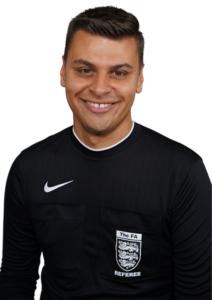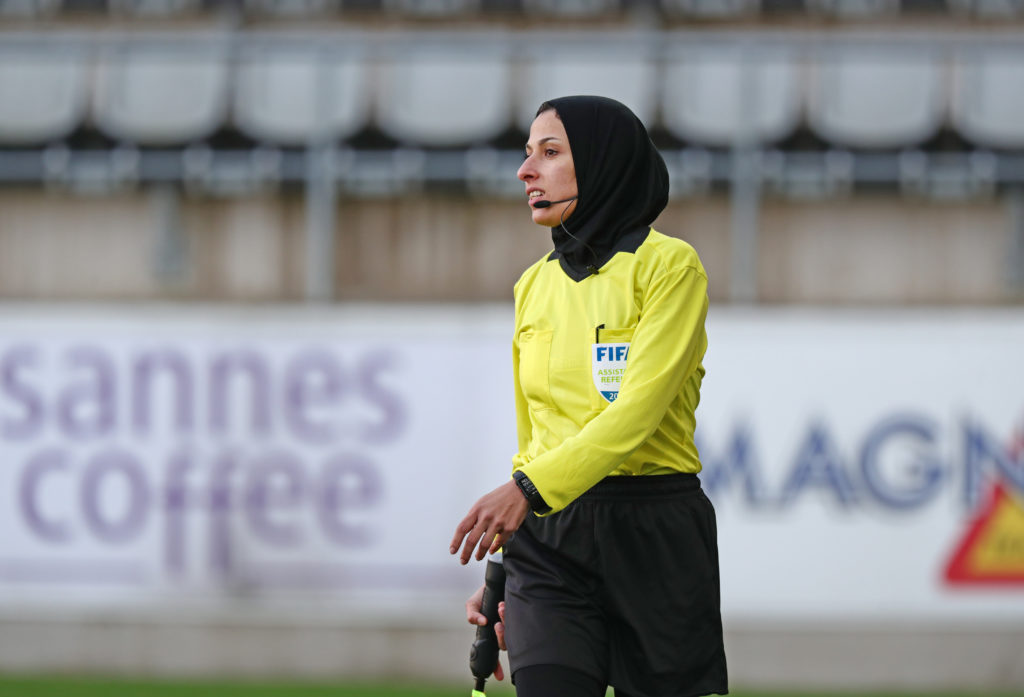What does preparation look like for a referee? A lot of things probably come to mind when you think of preparation.
- Packing your kit & equipment bag the night before a game, so you are ready to go the next day.
- Eating a healthy meal hours before a game and bringing healthy snacks and water to the ground with you.
- Making sure you are physically conditioned for 90+ minutes of play.
- Sharpening your physical skills, technical skills, and tactical skills.
- Warming up and properly stretching before games.
- Visualising or performing relaxation techniques during your pre-match preparations.
All of these components are forms of preparation. The more you attend to your preparation, the more confident you will feel on the pitch.
Let’s add one more crucial aspect of preparation that can improve confidence during games, situational preparation. Situational preparation is practicing different scenarios that may unfold during a game.
When you ignore situational preparation, chances are your confidence will be shaken when you are in an unfamiliar game situation.
For example, you’re near the top of your band of referees. Never during the season have you made a major error in any game. Making a mistake on a non-routine decision was never a big deal because you always seemed to bounce back.
In a mid-season fixture, you officiate a team that you refereed well earlier in the season. So, you were confident that you could do the same again. However, by half time, you’d made two errors on key match decisions (KMDs).
This was a situation you hadn’t experienced all season. You were frantic and impatient during the second half. Taking up bad positions, poor decision-making, and lapses in focus resulted in another error on a KMD. You ended up losing your match control.
What happened was that you were unprepared for the situation. The unfamiliar territory created a high level of anxiety that took you out of your usual style of officiating. Since you’d never been in that situation all season, you could not meet the challenge and recover from your early mistake in the game.
How could you have been better prepared if you had never experienced that scenario in previous fixtures?
The answer is by experiencing or imagining that scenario in practice. When you prepare for various scenarios, you feel more in control and confident when they arise in games.
For example, you could create scenarios when you train, such as:
- What would you do when the game is becoming more aggressive as the away side battle to get back into the game?
- What would you do if the home team changes their tactics early in the fixture?
- How would you officiate when you’re an assistant and the play is all in the opposite half to you?
- How would you cope with feeling that you’ve had a great first half when the half time break comes around?
You will feel more prepared and confident to confront those scenarios during games when you practice various situations in training.
The Player’s Perspective
During the 2022 World Cup, United States Head Coach, Gregg Berhalter prepared his team for months ahead of the many scenarios that maya have happened in the tournament.
“We’ve had the time [to prepare] for the last couple months. When you’re on the field and the sideline (touchline) and the crowd is loud, and there’s pressure moments — if you’re not prepared, I think it hurts decision-making.” – Gregg Berhalter, Head Coach, United States (2018-2022)
Berhalter knew that there would be challenges, but he also understood that preparation breeds confidence.
“What I do believe is that on our best day we can beat anyone in the world. Anyone.”– Gregg Berhalter, Head Coach, United States (2018-2022)
It is important to train with purpose. Practicing match scenarios that you could encounter prepares your mind to respond positively to those situations during games.
In my work with referees all over the world, I call this anticipating and coping. I help my clients to be ready to cope with challenging situations or setbacks on and off the field of play.
Referees need to identify different scenarios you might face in games based on your experience.
You need to ask yourself, “How do I want to respond in that situation? And how will I thrive under any situations?” Then consider playing out that scenario in training and responding with composure and clarity.
At The Third Team I work individually and in collaboration with different professionals where I have developed workshops and 1-2-1 sessions associated with Resilience and Mental Toughness Development to help referees. The workshops and 1-2-1 sessions are interactive, where referees are encouraged to open up and share their experiences to help themselves and each other.
Feel free to contact me if you’d like to know more about my workshops or 1-2-1 sessions and how I could help you or your officials.
Best Wishes,

Nathan Sherratt
Referee Educator & Managing Director of The Third Team

Nathan Sherratt
Nathan Sherratt, Referee Educator, Resilience Trainer and Managing Director of The Third Team. A Mental Toughness Practitioner based in County Durham, North East England.

